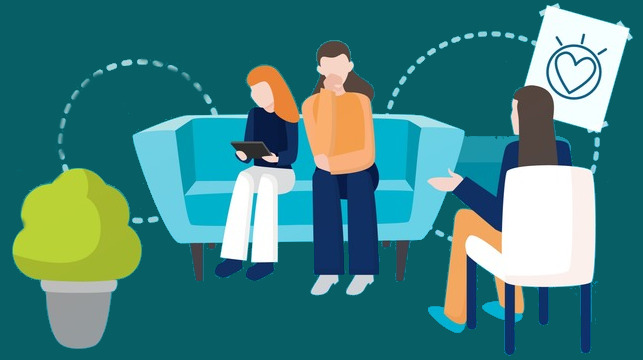Insomnia is one of the most common sleep disorders. The research shows it is affecting around 20% of the general population worldwide. This can include waking up in the middle of the night, struggling to get a good night’s sleep, or just feeling tired during the day. This can be a problem for many reasons: feeling tired during the day, not being able to perform simple tasks and other things that are important to daily life, anger or depression at what is happening and more.
Everyone has bad nights of sleep from time to time. But if it happens regularly, you may be diagnosed with insomnia. Insomnia is a common sleep disorder that can make falling asleep or staying asleep difficult or even impossible. There are many things you can do to get better rest, like coping with stress or changing your behaviours. Untreated, insomnia can lead to long-lasting health problems like weight gain, diabetes and high blood pressure.
Insomnia is characterized by difficulty:
- Falling asleep initially.
- Waking up during the night.
- Waking earlier than desired.
Types of Insomnia
There are some types of insomnia including primary and secondary.
Primary (or idiopathic) Insomnia is when the sleep disorder is not caused by, or associated with, a medical condition, psychiatric problem or medication.
Secondary Insomnia occurs as a result of a medical condition that interferes with your sleep, such as COPD or chronic pain.
Sleep-onset Insomnia: It means that, for reasons we don’t yet understand, you have trouble getting to sleep when you go to bed.
Sleep-maintenance Insomnia: If you find yourself bouncing between sleep and wakefulness on a nightly basis, or waking up early without being able to get back to sleep, then you may have a type of insomnia called Sleep-Maintenance Insomnia.
Mixed Insomnia: It is when you have difficulty both falling asleep at night and staying asleep throughout the night.
Paradoxical Insomnia: It is a sleep disorder that makes you feel as if you hadn’t slept.
What causes insomnia?
Insomnia is a disorder characterized by sleep not being restful, or disturbed during the night. The symptoms of insomnia vary based on the person, and may include:
- Life stressors like health issues and your job can cause insomnia.
- Millions of people suffer from insomnia and are unable to enjoy a good night’s sleep because of an unhealthy lifestyle and sleep habits.
- Underlying mental health problem such as anxiety or depression.
- Chronic diseases like cancer are a leading cause of sleep disorders.
- Chronic pain due to arthritis, fibromyalgia or other conditions is the top reason for sleep difficulties.
- Gastrointestinal disorders such as heartburn and acid reflux disease.
- During menstruation, menopause and other hormone fluctuations.
- Medications and Substances like alcohol.
- Neurological disorders, such as Alzheimer’s disease or Parkinson’s disease.
- Insomnia can be caused by other sleep disorders, such as sleep apnea and restless legs syndrome
What are the symptoms of insomnia?
Chronic insomnia may cause:
- Trouble falling asleep and/or waking up in the middle of the night.
- Difficulty returning to sleep.
- Feeling tired/fatigued during the daytime.
- Irritability or depressed mood.
- Problems with concentration or memory.
Insomnia Diagnosis
If you have insomnia, your doctor will do a physical exam and ask about your medical history and sleep history. They might tell you to keep a sleep diary for a week or two, keeping track of your sleep patterns and how you feel during the day. Your doctor may refer you to a sleep center for further tests.
Insomnia Treatment
Your doctor may prescribe sleeping pills for a short time if you have acute insomnia. Don’t use over-the-counter sleeping tablets, as they might have side effects and they tend not to work as well over time. For chronic insomnia, treatments can include behavioural therapy that helps change the things you do that make insomnia worse, and learn what you can do to promote sleep.
Insomnia Complications
Our bodies and brains need sleep so they can repair themselves. It’s also crucial for learning and keeping memories. If insomnia is keeping you awake, here are some symptoms to look out for.
- A higher risk of health problems like high blood pressure, obesity, and depression
- A higher risk of falling, if you’re an older
- Trouble focusing
- Anxiety
- Grumpiness
- Slow reaction time that can lead to a car crash
Insomnia Prevention
Good sleep habits can help you get to sleep and stay asleep all night long, instead of lying awake in bed. Insomnia is a common problem but it doesn’t have to be. Here are seven tips for preventing insomnia:
- Go to bed at the same time every night – and get up at the same time every morning.
- Avoid large meals or spicy foods close to bedtime.
- Get regular exercise, but not right before bedtime.
- Don’t smoke cigarettes, and avoid alcohol or caffeine close to bedtime.
- If you can’t sleep, get out of bed and do something relaxing until you feel sleepy again.
- Avoid using your bedroom for anything other than sleep (no eating, watching TV, and working on the computer).
- Make your bedroom quiet and comfortable – use shades or an eye mask if light bothers you; use a fan if it’s too hot or too humid; try to have a comfortable temperature (if you are too hot or too cold, it will be hard to sleep).
- Exercise regularly and eat a healthy diet for good health – “especially important for good sleep.”








